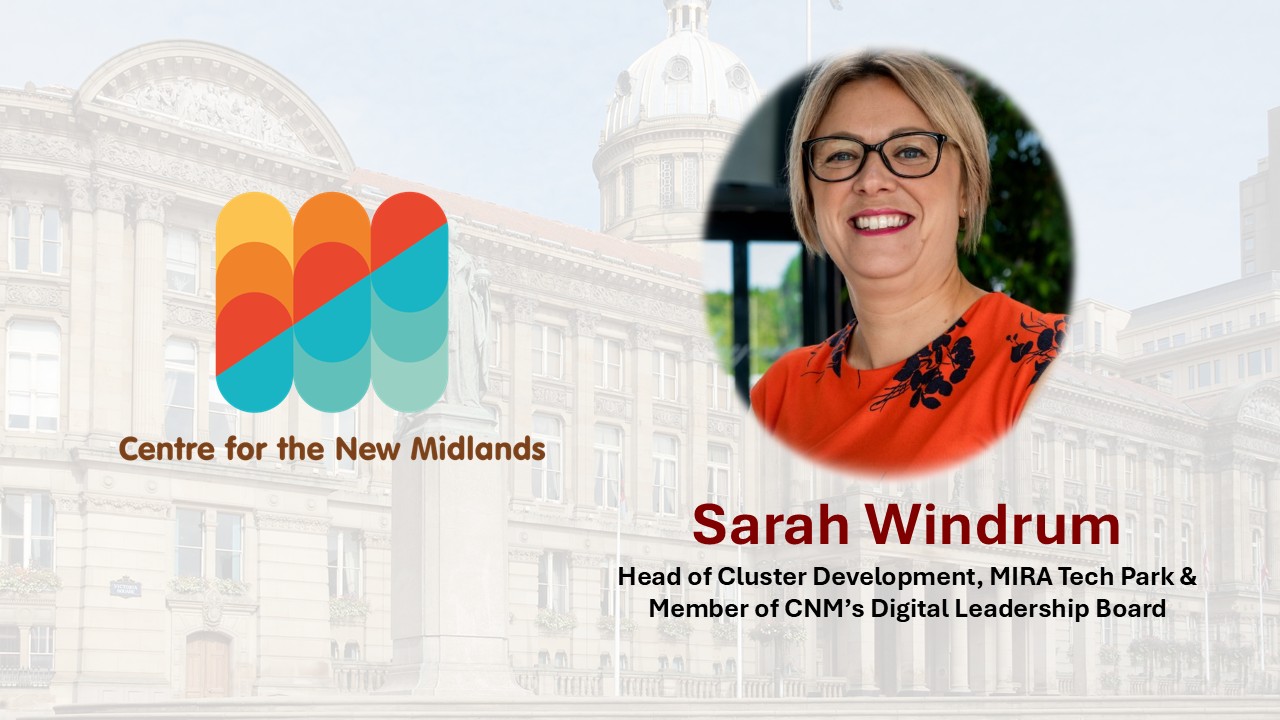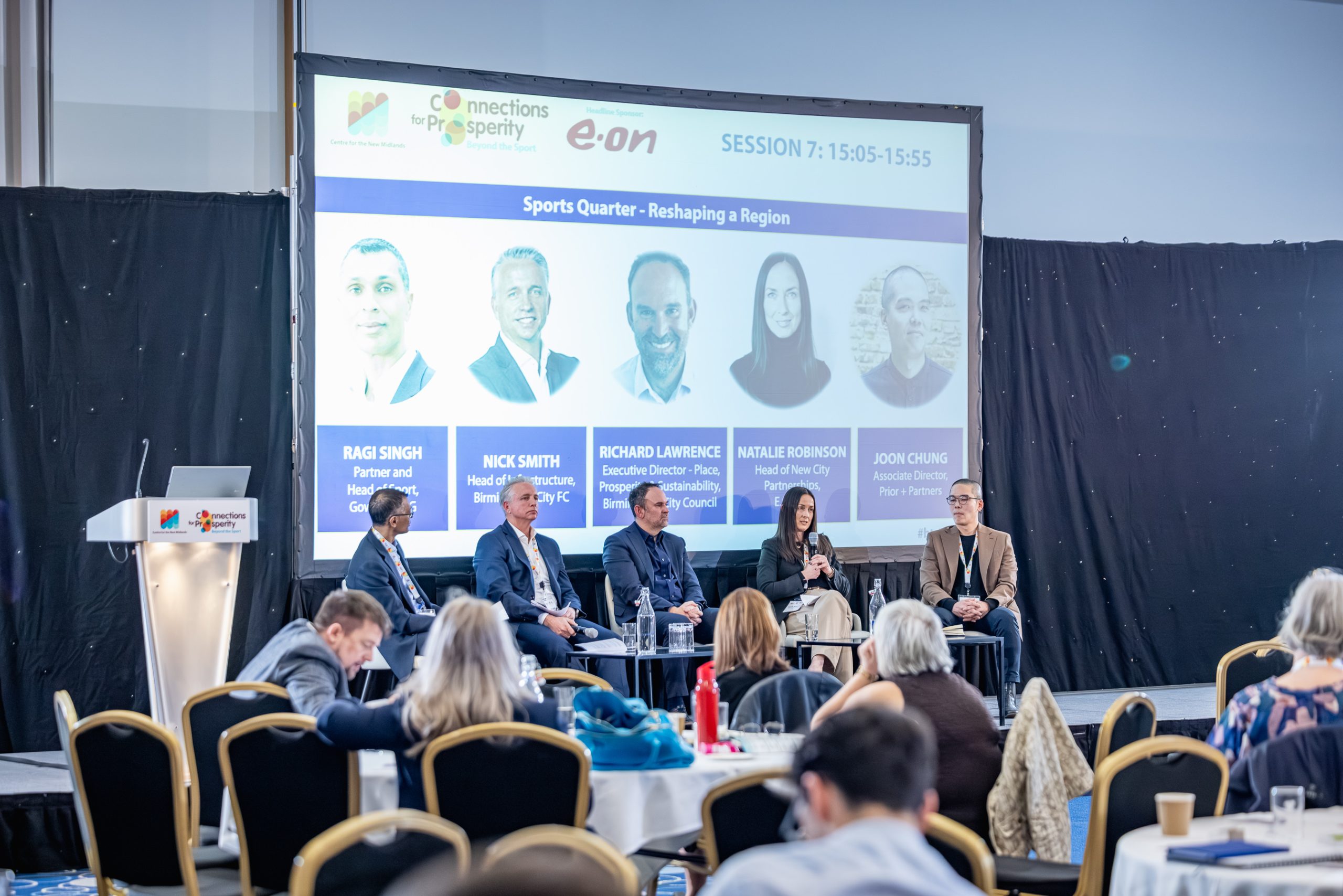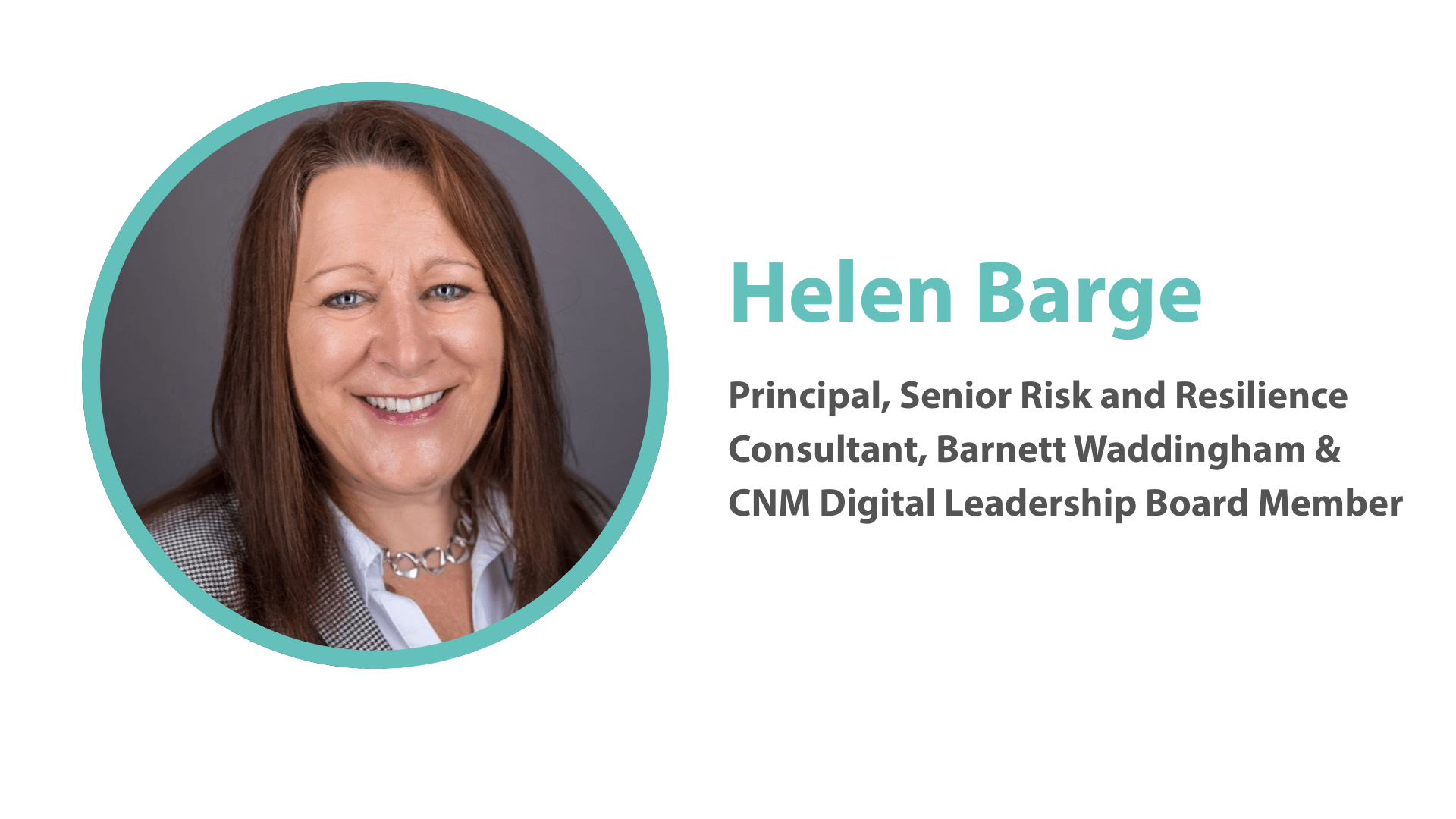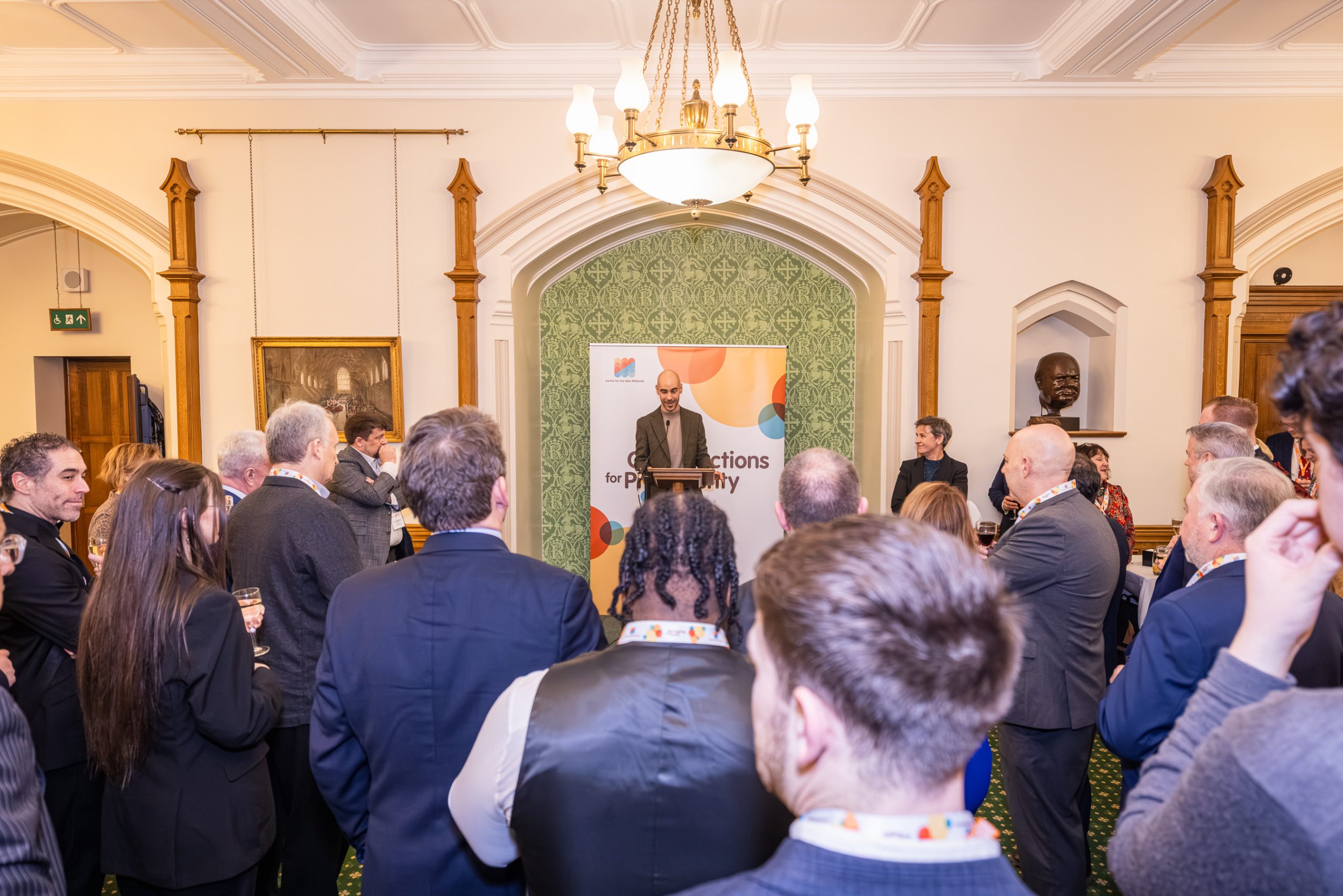Ahead of the launch of Britain’s long-awaited industrial strategy, Sarah Windrum (former Chair of Coventry & Warwickshire Local Enterprise Partnership, member of CNM’s Digital Leadership Board and Deputy Chair of the West Midlands Innovation Board) shares her reflections on the challenges businesses face adopting new technologies.
(June 2025)
I co-founded a technology business in 2009 supporting small to medium-sized enterprises to shift their on-premise ICT infrastructure into the cloud. I had experience working with a BlackBerry partner delivering solutions for mobile and remote teams and my business partner had a background in server networks. The biggest challenge we faced was behavioural change across the organisations we were working with. Senior Leadership wanted to implement digital tools for efficiency, transparency, but the sales teams, the field engineers, the delivery drivers didn’t want to adopt new ways of working until we were able to show them the time it would save them personally and the administrative burden it would remove from their day.
Our relationship with technology has changed since 2009. We make demands on the tools we use at work influenced by our consumer behaviour and expect to be able to use the technologies that make our life easier whatever we are doing. A recent KPMG global survey highlighted that over half of people in employment want to use AI to support their role. And why not? We are using generative AI to create content for our social media, to improve our internet research and to remove unwanted people and objects from our photos! But all technology has its risks and we need our workplaces to be prepared to mitigate these. Data security and technology resilience are key areas that currently many small to medium-sized businesses don’t have the expertise or budget assigned to manage effectively. I have heard so many horror stories from confidential information being compromised to patents being rejected because people are using online versions of ChatGPT to tidy their content without considering the data breach and public domain implications. AI is a great tool but it’s a minefield to navigate not just how and where to use it but also when not to.
So where does that leave business leaders? In a world where our greatest competition is most likely to be a disruptive start-up on the other side of the world, we need a business support environment that is more cohesive and less competitive to enable us to adopt these new technologies most effectively. Ever since I have been involved in regional economic development, the landscape has been complex but now it’s become a postcode lottery. I have heard from businesses how they are navigating it by using accountant addresses, home addresses, or choosing project partners based on their postcode over their collaborative credentials. These are good examples of how the entrepreneurial business leader will always find a way but it doesn’t feel like the optimal way to accelerate growth. If you add into this mix the complexity of understanding and implementing new technologies like artificial intelligence to enable growth, no wonder business leaders in the region are showing a significant drop in confidence. The ICAEW’s most recent quarterly survey highlights the West Midlands returned -8.6 on the confidence index which is significantly lower than the regional average of +4.8 and also lower than the national average of -3.0 in the same quarter.
Don’t get me wrong. There are excellent support programmes out there for digital transformation like Made Smarter supporting manufacturers with implementing automation and other technologies into their processes to improve output; but I don’t see the same offer supporting back-office operations. Big players like Sage and Quikbooks offer support for their software and the Google Digital Garages offer entry-level support for solo entrepreneurs and lifestyle businesses; but what is needed to increase growth and productivity should be more strategic and forward-thinking when it comes to technology adoption. When I was Chair of CWLEP I pushed for a ‘Digital Fundamentals’ voucher programme where businesses could select experts to work with across digital marketing, search engine optimisation, web design, cloud accounting, database management, business intelligence reporting or any other technology area that would improve the operations of the business from sales to HR. Obviously now we would add machine learning and generative AI into the mix! These experts would listen to the requirements, understand the context of the business including growth ambitions and resource challenges, and prepare a brief which the business leader could then take to the market to develop an appropriate solution. When I was talking to customers, I would often hear ‘our company needs an app’ or ‘our company needs a CRM system’ and what they really needed was to better understand how to communicate with customers or how to manage their data.
Digital Fundamentals did get taken forward, along with similar ideas across other business representative organisations, but it became Rishi Sunak’s ‘Help to Grow Digital’ focusing heavily on basic off-the-shelf solutions like e-commerce, CRMs, or bookkeeping software – often without the necessary guidance and training for effective implementation. The scheme was also complicated by applicants having to use approved (usually large!) suppliers and not being able to select your own partner to work with. The main advantage a small business has is flexibility in procurement and that is something I know I held most dear when choosing companies to work with. Any support scheme that is going to work effectively needs to ensure that flexibility of choice is prioritised.
Help to Grow Digital wasn’t a resounding success and the rest, as they say, is history. I hope we see a better approach from this current Government through the Industrial Strategy but I am not seeing positive signs yet. Without Local Enterprise Partnerships to galvanise that business voice and connection, I feel it is the small to medium-sized business owner that is being most let down. Digital tools that enable start-ups across the world to do more with less are disrupting every industry and we have a duty to ensure our UK businesses are at least as well if not better equipped for the age of AI. I hope we see an approach that supports a level of appropriate data and digital literacy for every business who wants it and not yet another postcode lottery.
ABOUT OUR AUTHOR:
Sarah Windrum is a technology business founder and investor leading the development of MIRA Tech Park’s future mobility cluster at the heart of the Midlands. MIRA Tech Park is a thousand-acre site on the Leicestershire and Warwickshire border home to over 40 global tenants specialising in vehicle research & development including zero-emission and cyber resilience technologies. Recent winners of The King’s Award for Sustainable Development, the Tech Park is home to a world-class blend of facilities and expertise at HORIBA MIRA enabling the accelerated delivery of new technologies to market and supporting decarbonisation of transport at scale making all our journeys safer, cleaner, and smarter.
Sarah was formerly Chair of Coventry & Warwickshire Local Enterprise Partnership and still serves as the Midlands Engine Digital Ambassador and a Director for the Coventry & Warwickshire Chamber of Commerce. She is Deputy Chair for the West Midlands Combined Authority’s Innovation Board leading on the £33m Innovation Accelerator pilot. She is also a Regional Fellow at University of Warwick and a recent MSc graduate from Coventry University in Data Science.








